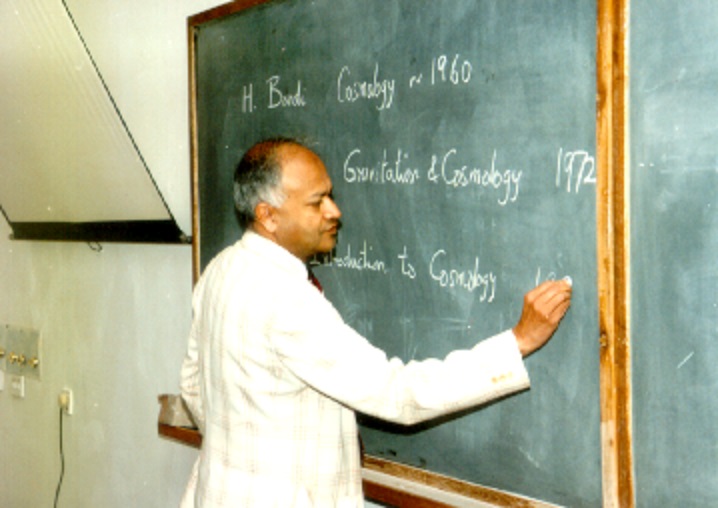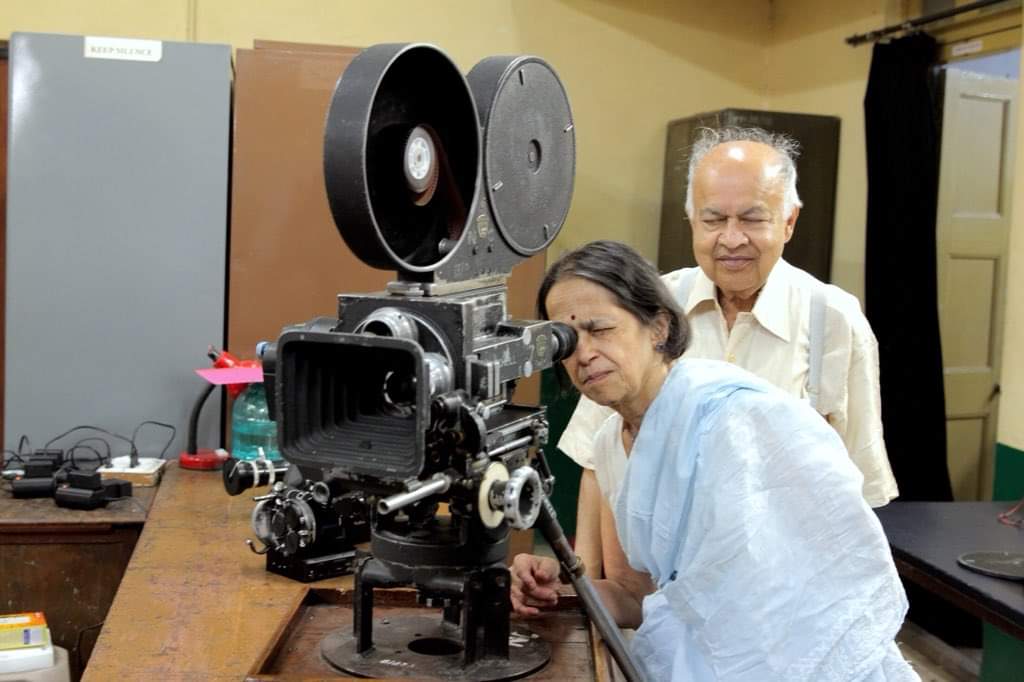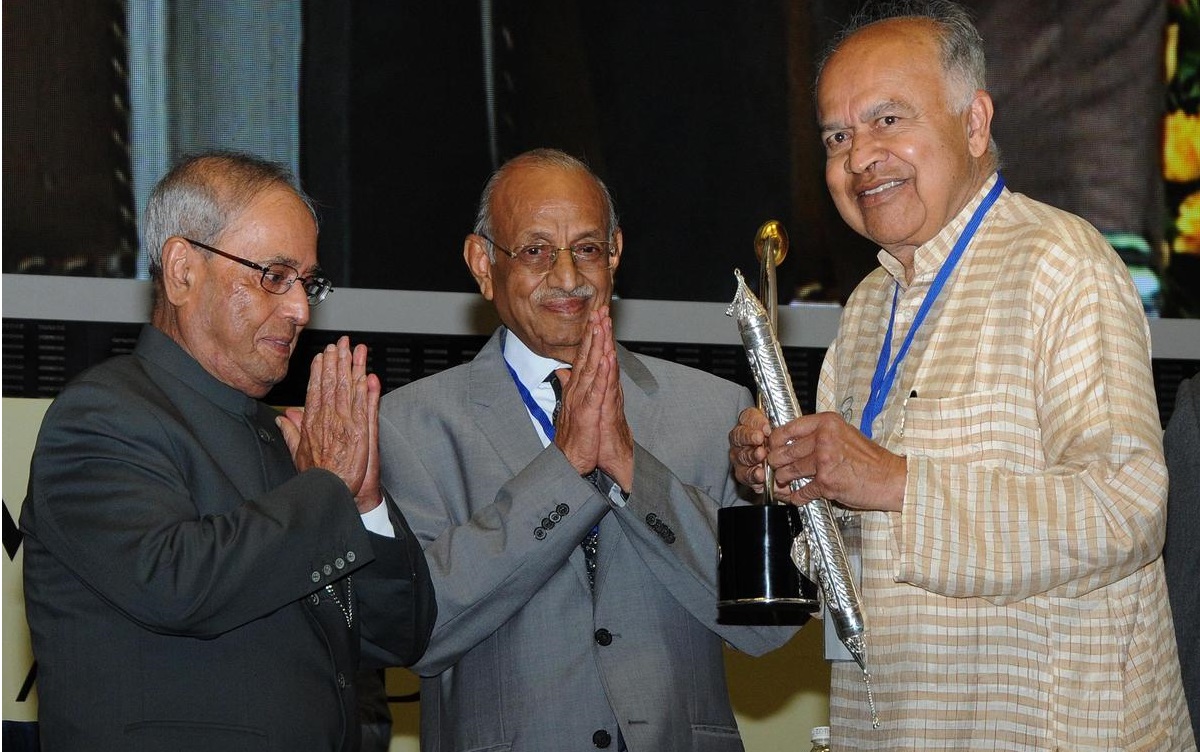
Childhood
Jayant Narlikar was born in Kolhapur, India, on 19 July, 1938 to Vishnu Vasudev Narlikar and Sumati Narlikar. His father, was a mathematician and theoretical physicist at Banaras Hindu University, Varanasi and his mother was a scholar of Sanskrit. Narlikar went to school at Central Hindu College in Varanasi. He then studied at Banaras Hindu University, where he received a Bachelor of Science degree in 1957.

Career
Narlikar began his research career as a doctoral student in theoretical cosmology, under the guidance of Fred Hoyle at Cambridge University and was awarded a Doctor of Philosophy degree in 1963. He was then a postdoctoral fellow at King's College in Cambridge and earned an additional Master's degree in astronomy and astrophysics in 1964.He was also a fellow at King's College. He joined Tata Institute of Fundamental Research, Mumbai in 1972 and later went on to found the Inter-University Centre for Astronomy and Astrophysics in Pune.
As a researcher, Narlikar made unique and groundbreaking contributions to cosmology, challenged prevailing scientific orthodoxy, and took it as a mission to spread science and scientific temper to the broader public. He is best known for co-developing the Hoyle–Narlikar theory of gravity (1966) and for championing the steady-state theory in the initial days and quasi-steady-state theory of the universe (1993) in the later years. These theories challenged the widely accepted Big Bang model. In later years Narlikar also pursued the idea that microorganisms could have entered the Earth’s atmosphere from outer space.

Building IUCAA
In the 1980's the University Grants Commission, invited Narlikar to set up IUCAA, which would be unique in addressing the difficulties of the Indian universities in carrying out research in astronomy and astrophysics. As founding Director of IUCAA from 1988, he embedded the best practices of the world's most successful institutions into its constitution.
The development of the university community is Narlikar’s greatest contribution to astronomy in India. He often visited University departments and Colleges all over the country, lecturing and introducing teachers and students to IUCAA, and providing all emerging facilities at IUCAA’s cost.

Personal and Public life
Narlikar married Mangala Narlikar (née Rajwade), a mathematics researcher and professor. The couple had three daughters: Geeta, Girija and Leelavati who all work on various fields of science.
Narlikar was an avid science communicator through his books, articles, and appeared frequently on radio and television to explain complex scientific ideas in simple terms. He is well known for his science fiction stories with an Indian touch. He was also the consultant for the Science and Mathematics textbooks of NCERT.
Narlikar started a pioneering effort in any Indian research institute with IUCAA's public outreach and school education programme. He actively participated in all IUCAA's public programmes, encouraging young scientists to do so too. He promoted scientific temper and publicly criticised pseudoscience, including astrology, arguing instead for evidence-based thinking.

Awards
Prof. Jayant V. Narlikar received many national and international awards and honorary doctorates. Some notable awards include:
- Padma Bhushan (from the President of India, 1965)
- Padma Vibhushan (India's second-highest civilian honour, 2004)
- Maharashtra Bhushan (Maharashtra’s highest civilian award ) (2010)
- Adams Prize (1967)
- Shanti Swarup Bhatnagar Award (1978)
- Indira Gandhi Award (Indian National Science Academy) (1990)
- Kalinga Prize (UNESCO) (1996)
- Prix Janssen of the French Astronomical Society (2004)
- Sahitya Akademi Award (2014)